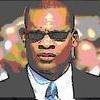YouTube has generated controversial figures in the past, however, currently, George Webb may be king, or at least one of its princes. He is an investigative journalist, or, as implied by his critics, a self-styled "investigative journalist." By virtue of his politics, he would have to be categorized as "progressive" or "liberal." He states that he voted for Barack Obama twice and supported Bernie Sanders in 2016. He does seem possessed of a mind which projects a wholesome curiosity about contemporary affairs mixed with a strain of mischievousness. By his own words, George Webb likes to connect "dots."
I have been watching George Webb off and on since at least 2017. Initially, he billed his quest as "searching for Eric Braverman," who at one time was presiding over the Clinton Foundation as CEO and who rather suddenly "disappeared." George Webb would frequently ask, "Where is Eric Braverman?" From this humble beginning, George, as dogged as Lt. Frank Columbo (played by Peter Falk), pursued his quest wherever it might lead. Well, it led to many and diverse "dots." In fact, the span of George Webb's eventual "leads" became impressive. In searching for the meaning of a hair, he uncovered a lion's mane of avenues of investigation, or potential ones.
George is a very tall man. He is open of face and engaging in personality. It is hard to doubt his sincerity in pursuing his investigations, as it appears to be a thankless one and financially unrewarding. Yet, George Webb seems to be unexpectedly well-informed. One suspects that his statements may be heavily intuitive, but can one be sure? By working in the murky terrain of the Clintons and in the incredibly perverse quasi-mugging of an elected president of the United States of America, George entered the ranks of the YouTube investigative militia, where he grew into one of its prominent generals.
Some have wondered if George Webb might not be an "asset" of some intelligence agency. Perhaps because George's last name is "Webb," the favorite intelligence organization associated with him was the Mossad. Was there a Mossad contact providing George with tidbits of data relevant to the convoluted world he was trying to understand by, of course, connecting the "dots?" Certainly, none from the Mossad volunteered to be that one. American politicians may portentously announce, "The people must know," but that was not the way with intelligence organizations.
Lately, George Webb has found his curiosity challenged by the unprecedented rise of COVID-19 and its devastating consequences to life and limb -- both physically and economically. He was not alone. As death and quarantine around the world spiraled, more people turned to George Webb as a non-establishment source who seemed to know lots of obscure "dots." This was inevitable; few trust the Big Media anymore. If the SARS II-coronavirus was a possible lab-made threat, who would be so naïve as to turn to the established channels of information for an honest answer? After all, ninety percent of the American news outlets are controlled by six companies, and, folks, these constitute big global business, as well.
Therefore, it was inevitable that George Webb would be tagged a "conspiracy theorists." This was a term invented by the CIA in the years immediately following the assassination of John F. Kennedy to taint, and eventually deride, amateur investigators who suggested a link between the CIA and the untimely death of a U.S. president. Most recently, CNN was singled out by Webb and others as a media outlet which operated in this way.
Today, April 23, 2020, George Webb was on his YouTube channel "live" awaiting a phone call from CNN-linked Donie O'Sullivan, a reporter, who was to interview George Webb on some of his recent assertions in regard to the "Benassis," although Webb seemed to think he would be interviewed generally about his "dots" regarding the COVID-19 genesis and its sprawling ramifications. Perversely, O'Sullivan relentlessly focused on the Benassis (Matt, Maatje, Virginia and even Benny). Webb's face became noticeably reddish as the focus of O'Sullivan was on hard evidence and on the harmful effects of false accusations, which engendered threats and controversy upon the various Benassis.
As with all self-respecting reporters, George Webb relied at times on anonymous sources. He seemed a bit hurt that fellow reporter Mr. Donie O'Sullivan did not accept this source altogether. All in all, O'Sullivan had suggested Webb had been reckless and irresponsible. Most journalists will accept "reckless" as the price sometimes paid for "two-fisted" investigations, but "irresponsible?" is hurtful, as it denies the purposive integrity of the effort. How could anyone associated with CNN hurl stones at a fellow reporter? George Webb was not likely to let this sleeping dog lie.
